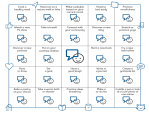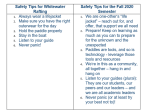
It’s convocation season! Proud graduates, along with their families, friends, faculty, and loved ones, are celebrating the culmination of their journeys through post-secondary learning. All the sacrifice and hard work, the late nights and early mornings, balancing school along with multiple other priorities and commitments…it all adds up to make crossing the finish line cause for jubilant celebration.
Over the years I’ve had the extraordinary privilege of seeing up-close approximately 25,000 students take their ceremonial walk across the dais at college convocation, and I’m unfailingly struck by how many ways there are to make that short but memorable journey.
On the face of things, proceeding in a straight line across the front of a 30-foot stage from one end to the other (and stopping to shake some hands along the way) seems pretty straightforward. Routine even. Not so! Every grad arrives for their moment on the dais carrying stories, lived experience, histories, and identities that are theirs alone – and that’s expressed in a myriad of ways.
Many graduates step forward with supreme confidence, head held high. Some pause in the middle of the stage, take a look around, soak it all in. Others take a bow, give a thumbs up, wave to their loved ones. A few dance their way joyfully across the stage. Memorably, a handful even perform backflips (this is true). Gown and all.
Other grads move forward with solemnity and gravitas. They’re no less confident, but experience their moment reflectively and with care. They walk with dignity. They step carefully from point A to point B. Some people walk with tears in their eyes, or tears that overflow. Some people run, or saunter, or stumble a little. Some walk tentatively, diffidently, gaze lowered.
On occasion, things don’t go according to plan. I’ve seen graduates take a wrong turn in the middle of the stage and get “lost” – needing a guiding hand to help get them back on track. One young woman had broken the sole of her shoe and shuffled forward, and she didn’t let it stop her. Her gait was uneven but she was going to experience her moment of success and let nothing stand in her way, head held high.
There are graduates who cross the stage with a service or support animal, with a newborn baby, with a mobility aid, using a wheel chair. In a world that doesn’t always embrace difference those journeys represent challenges navigated and overcome. For so many, those challenges overcome are often invisible, but no less real.
I can’t help but reflect on how a 10-second journey across the dais is kind of a metaphor for the many ways in which we each make our own journey through life. Sometimes setting out with a clear goal in view and never wavering, or deliberately pausing to look around, smell the flowers, take stock. Getting lost along the way. Needing a helping hand or an encouraging word to get back on track. Stumbling, maybe even falling. The pride in accomplishment and the work it takes to get there. Feeling hopeful, excited, uncertain, confident, grateful, apprehensive, joyful, optimistic. All of the above?
Most students feel at least a little nervous about crossing the stage at convocation. They’re worried about “not doing it right” and when the moment arrives it’s all a bit overwhelming. But the truth is, there’s no “right” way to cross the stage. Like life, it all goes by so fast and the trick is to be fully present, authentically you, and know that it is your journey to take.
Congratulations Class of 2023!

















